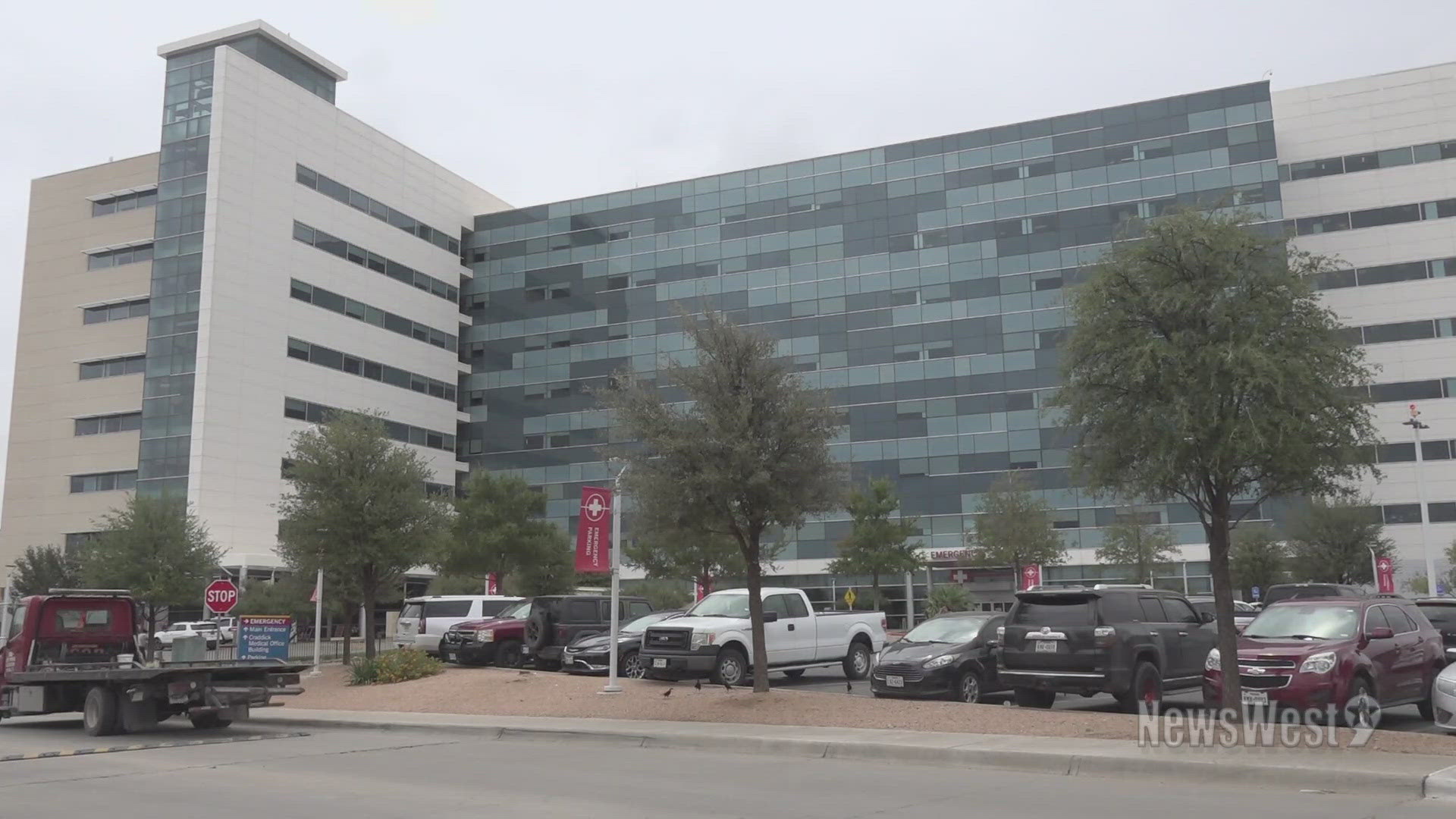MIDLAND, Texas — Hurricane Helene devastated parts of the East Coast less than two months ago, and its effects are still being felt across the country.
Now, hospitals nationwide — including those in West Texas — are facing a serious IV fluid shortage.
Starting Tuesday, Nov. 5, Midland Memorial Hospital (MMH) will be postponing some medical procedures due to a national shortage of IV fluids, which stems from storm damage at a major production facility.
MMH's Chief Medical Officer, Dr. Rohith Saravanan, MD, MBA., explained that Helene affected the North Cove plant that Baxter International has in North Carolina.
"That plant alone used to supply 60% of all the IV fluids across the nation, so when that plant got flooded and there was structural damage, they needed to do a lot of recovery before they could get that plant operational,” said Saravanan.
The Baxter plant is back up and running, but hospitals like MMH, which typically received daily shipments of IV fluids, are now working with limited supplies.
“We got to a point where lactated ringers were down to five days left in the hospital," Dr. Saravanan said. "Normal saline was left at 15 days.”
The team at MMH needed a solution. They created a team of medical professionals that met once a day for two weeks to find different conservative solutions.
"We look at, 'what is our current inventory, what is our daily usage? How long will our current inventory last if our daily usage is at this level today?'" said Saravanan.
After weeks of evaluating options, postponing some non-urgent surgeries seemed to be the best temporary measure.
“There are certain cases that don't use a lot of IV fluids, so those cases can continue," Dr. Saravanan said. "Other cases that use a lot of IV fluids, like some plastic surgeries, will be postponed if they aren’t time-sensitive.”
The pause on elective surgeries is only temporary, lasting until MMH can stabilize its inventory.
“Baxter itself has gotten permission to source fluids internationally, so several FDA-approved suppliers from places like Spain have shipments on the way, but those supplies still need to be cleared, shipped, and delivered,” said Saravanan.
While there is no set timeline for when the shortage will end, patients are encouraged to stay in touch with their doctors.
“Every surgery is important to the person scheduled to have it, so while we might call it elective, to them, it's very needed, and they're waiting for this to get resolved and so are we," Saravanan said. "If they walk into the hospital and need something done, they will still receive the care needed for urgent and emergent situations.”

